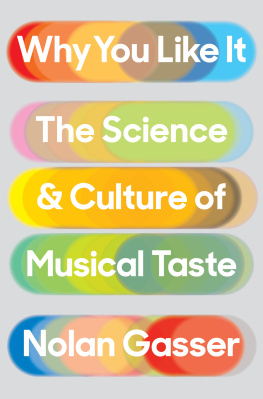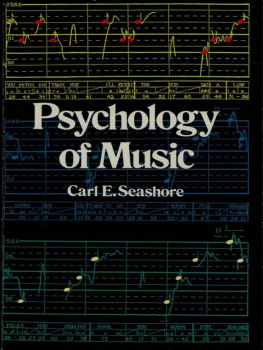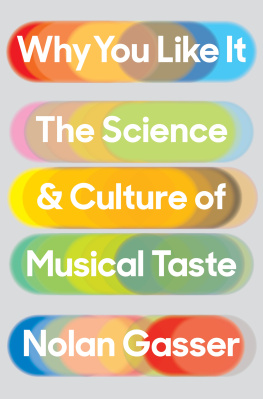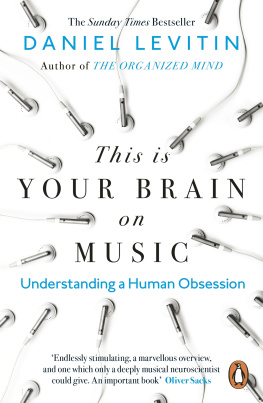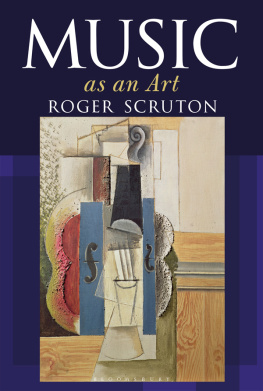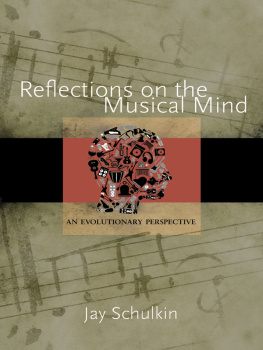Contents
Guide

WHY YOU LIKE IT
The Science and
Culture of Musical Taste
NOLAN GASSER

NOTE
Frequent reference is made in this book to the companion website:
http://www.WhyYouLikeIt.com
All information on the website, whether or not related to this book, is the property of the author. Flatiron Books has no relation to, or responsibility for, the WhyYouLikeIt website or any of its content.
The author and publisher have provided this e-book to you for your personal use only. You may not make this e-book publicly available in any way. Copyright infringement is against the law. If you believe the copy of this e-book you are reading infringes on the authors copyright, please notify the publisher at: http://us.macmillanusa.com/piracy.
For Lynn, Camille, and Preston
When I was twenty-three, my buddy Glenn Georgieff and I sold all of our belongings and flew to Paris, where I spent the next two years studying composition, playing jazz, and searching for answers to questions I hadnt quite yet formulated. By the end of the first year, wed built up a pretty good circle of friends, mainly other expats but also a few bons Parisiens. During one of our regular dinner soires, one of our French friends stood up, a few glasses of Beaujolais in, and proposed a game where she would go around the room and align each person with a literary genre that matched their personality. To Glenn, at that moment an aspiring novelist with bohemian tendencies, she tagged un roman (a novel); to another, a rather quirky and colorful girl in our company, she assigned a haiku. She then turned to me and stared a while; finally she said, Ive got it: youre an encyclopedia.
In truth, I felt a bit insulted: As the one active artist in the bunch, shouldnt I be aligned with something more romantic, more aestheticI dont know, maybe a sonnet, or an epic poem? And while I still think I got shortchanged in my literary nom de guerre, I must admit that there wasand istruth there. Beyond my creative aspirations, I have always been prone to want to see the bigger picture, the story behind the story, the history that gives rise to the present reality. And so, as clichd as it sounds, this book is literally decades in the makinga chance for me to be encyclopedic for a change, to wax comprehensive about the topic that has defined me since I first plucked out Three Blind Mice on the piano by ear, at the age of four: music.
In the years since Paris, Ive managed to successfully formulate a good many of the questions I couldnt quite articulate in my youth. Ive even managed to find a few satisfying answersabout music, if not about life in general. This book offers the most comprehensive evidence to this former claim: my best attempt to explain not just what music is, but why it matters to us.
Enabling my audacity to tell this story have been a few facts along the way. The first is my lifelong commitment to music educationformally via a bachelors degree in piano and composition, a masters degree in composition, and a PhD in musicology; and informally via perpetual self-study in myriad music-intersecting disciplines: history, philosophy, physics, neuroscience, sociology, and psychology.
The second source of this audacity is my similarly eclectic approach as a composer and pianistworking across multiple styles, or species, as Ill soon label them, from practically my earliest attempts. Even today, most of my compositional and performance efforts will inevitably involve mixing a bit of this style and a bit of that style, in search of some fresh musical expression.
The third and perhaps most consequential source in enabling this book is the good fortune I gained in 2000when I was tapped to be the chief musicologist for a tech start-up: the company now called Pandora. Never would I have predicted in 2000 that this company, and its Music Genome Projectof which I am the architectwould become so widely utilized by music lovers throughout the US and beyond, and so influential in the digital music revolution of the early 2000s. This fortuitous opportunity has no doubt given me the bona fides to write a book about musical taste. But more practically, my work at Pandora enabled me to dig into all realms of music more deeply than I would have otherwise; it forced me to approach musical analysis and musicology in ways I hadnt previously; and it allowed me to confront headlong a profound mystery I hadnt even considered before: What is musical taste and where does it come from?
Indeed, I liken this book to a mystery novela musical whodunit: only at the end will you truly know the whys and wherefores of your musical taste.
Why You Like It is indeed about musical taste, but it also touches upon many other subjects that skirt along its edges. As I like to say, discussing musical taste gives me the opportunity to talk about music in general, since every dimension of musicits history, theory, practice, aesthetics, science, culture, psychology, etc.impacts what music we like and why we like it. While this presents terrific opportunities for an encyclopedic guy like me, it also poses serious challengesnot least the daunting need to synthesize and explain everything related to music. This accounts for the wide scope of topics tackled in this book, for better or worse. Yet, to the degree that Ive succeeded in my efforts, this broad approach affords a potentially rich bounty to lay nonmusician readers of this book: to not only better understand their musical taste, but also to heighteneven changehow they listen to, and think about, music. This is the case, moreover, whether your tastes are limited to the boundaries of pop, rock, jazz, hip hop, electronica, world music, or classicalor whether, like me, they transcend multiple musical domains.
This book is first and foremost aimed at the average music lover, not the trained musician. To be fair, it skews a bit toward those with a modicum of musical backgroundhaving taken piano lessons as a child, for example. It should also be noted that this book cites the names of lots and lots of musicians and composersfrom every era and genre. While in many cases these names will be accompanied by a brief contextual description, in many others they will notnamely, when the person is particularly prominent within the genre in question. If you encounter a stand-alone name you are unfamiliar with, do not panic: you are instead kindly invited to look it up on Wikipedia, etc.; after all, learning more about famous musicians should be a welcome goal of anyone exploring musical taste.
However, rest assured that prior music training is not a prerequisite. Nor is this book aimed at academics or professionals in the fields of anthropology, physics, neuroscience, sociology, or psychologyalthough some broad awareness in one or more of these fields wont hurt. At the same time, it is my sincere hope that professional musicians, as well as academics in science, sociology, or psychology, will gain something of value from this book: I know I did in researching and writing it.
There is, of course, a rich tradition of technical books about music written by musiciansincluding composersaimed at lay readers. Standing in the wake of related efforts by giants like Leonard Bernstein (

